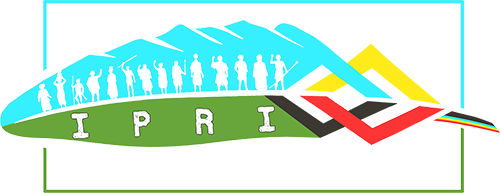Global Database
This Initiative will have a global data base on cases of criminalization, violence and impunity against indigenous peoples. This will include a compilation of discriminatory laws and policies criminalizing indigenous peoples; fact sheet of cases, actions taken by human rights bodies and governments, relevant data relating to indigenous peoples’ human rights among others. The database will be the key source for evidence-based advocacy and call to action by this Initiative
Website and Social Media
This Initiative will have its website and social media as one of its channels for sharing information and drawing public attention and support. The website will include regular updates on the state on the criminalization and impunity against indigenous peoples including news, feature stories, blogs, action alerts, among others.
Annual Report on the State of Criminalization and Impunity Against Indigenous Peoples
An annual Report will be issued by this Global Initiative based on verified information from indigenous organizations, networks, advocate organizations and other reliable sources. It will include data and analysis of trends, challenges and recommendations. The issuance of the Annual Report will be done around the April in time for the session on the UN Permanent Forum on Indigenous Issues, and a midyear report along with thematic reports on the first week of August in time for the International Day of the World’s Indigenous Peoples on August 9.
Periodic National Focus
This Initiative will focus on certain countries based on the worsening condition of indigenous peoples in relation to criminalization and impunity in a particular period. For 2020-2023, the focus countries are those with reported high incidents of criminalization and impunity as follows: Colombia, Mexico, Brazil Philippines, India, Democratic Republic of Congo and Kenya. Resources to be generated by this Initiative will support indigenous organizations and networks in these focus countries in line with the aim of this Initiative. Some focus countries may change periodically depending on the progress and level of capacity and resources.
Coordination and collaboration with indigenous peoples regional and global networks and alliances
This Initiative will work closely with indigenous peoples’ regional networks to consolidate, strengthen and complement efforts in addressing the criminalization and impunity against indigenous peoples. Coordination on monitoring and documentation, advocacy and mobilization activities among others shall be undertaken with regional indigenous peoples’ networks as appropriate.
Collaboration with Advocate Organizations and Human Rights bodies and Institutions
This Global Initiative will also collaborate with the broad range of human rights institutions and with advocate organizations and Human Rights bodies and Institutions at the national, regional and global levels. This includes relevant UN bodies such as UN Office of the High Commissioner on Human Rights, the Human Rights Council, the UN Permanent Forum on Indigenous Issues, the Expert Mechanism on the Rights of Indigenous Peoples and the Special Rapporteur on the Rights of Indigenous Peoples and other Special Procedures. It will also seek the support of relevant multilateral and national bodies, and UN member states.
This Global Initiative will also work in partnership with other human rights organizations, networks and institutions. The existing human rights organizations, e.g. Amnesty International, Human Rights Watch, Global Witness, Frontline Defenders, among others, have expressed their willingness to support this campaign. The terms of reference of the partnership with these organizations will be agreed upon to clarify the various forms of support and joint actions which will be taken jointly. Further, the National Human Rights Institutions including their regional and global networks will also be enjoined to be support this
Establishment of Legal and Support Fund
This Global Initiative shall also raise and allocate funds to provide emergency support for indigenous leaders, and rights defenders needing protection or security measures; and for victims and or their families seeking justice thru legal and other forms of remedies or support.






